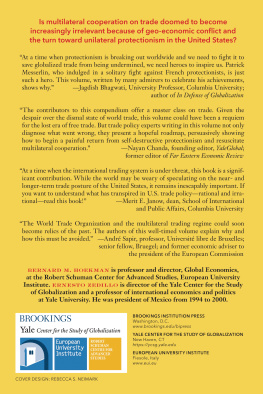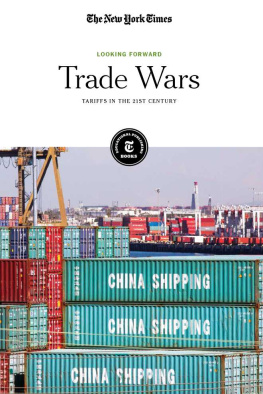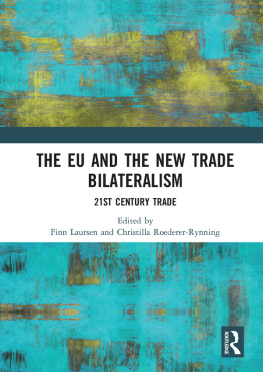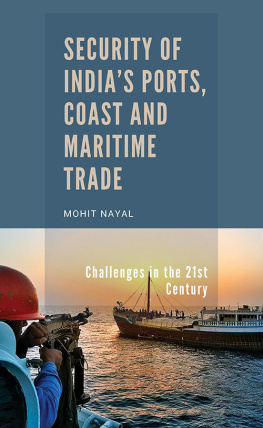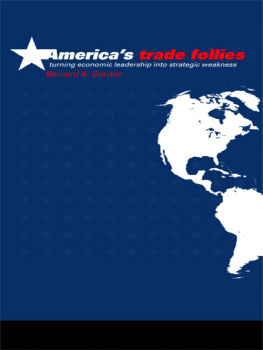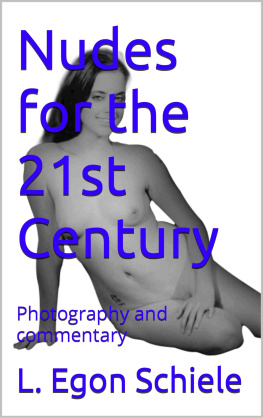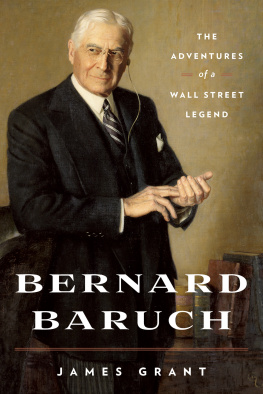Bernard M. Hoekman - Trade in the 21st Century
Here you can read online Bernard M. Hoekman - Trade in the 21st Century full text of the book (entire story) in english for free. Download pdf and epub, get meaning, cover and reviews about this ebook. publisher: Brookings Institution Press, genre: Politics. Description of the work, (preface) as well as reviews are available. Best literature library LitArk.com created for fans of good reading and offers a wide selection of genres:
Romance novel
Science fiction
Adventure
Detective
Science
History
Home and family
Prose
Art
Politics
Computer
Non-fiction
Religion
Business
Children
Humor
Choose a favorite category and find really read worthwhile books. Enjoy immersion in the world of imagination, feel the emotions of the characters or learn something new for yourself, make an fascinating discovery.
- Book:Trade in the 21st Century
- Author:
- Publisher:Brookings Institution Press
- Genre:
- Rating:3 / 5
- Favourites:Add to favourites
- Your mark:
- 60
- 1
- 2
- 3
- 4
- 5
Trade in the 21st Century: summary, description and annotation
We offer to read an annotation, description, summary or preface (depends on what the author of the book "Trade in the 21st Century" wrote himself). If you haven't found the necessary information about the book — write in the comments, we will try to find it.
Trade in the 21st Century — read online for free the complete book (whole text) full work
Below is the text of the book, divided by pages. System saving the place of the last page read, allows you to conveniently read the book "Trade in the 21st Century" online for free, without having to search again every time where you left off. Put a bookmark, and you can go to the page where you finished reading at any time.
Font size:
Interval:
Bookmark:
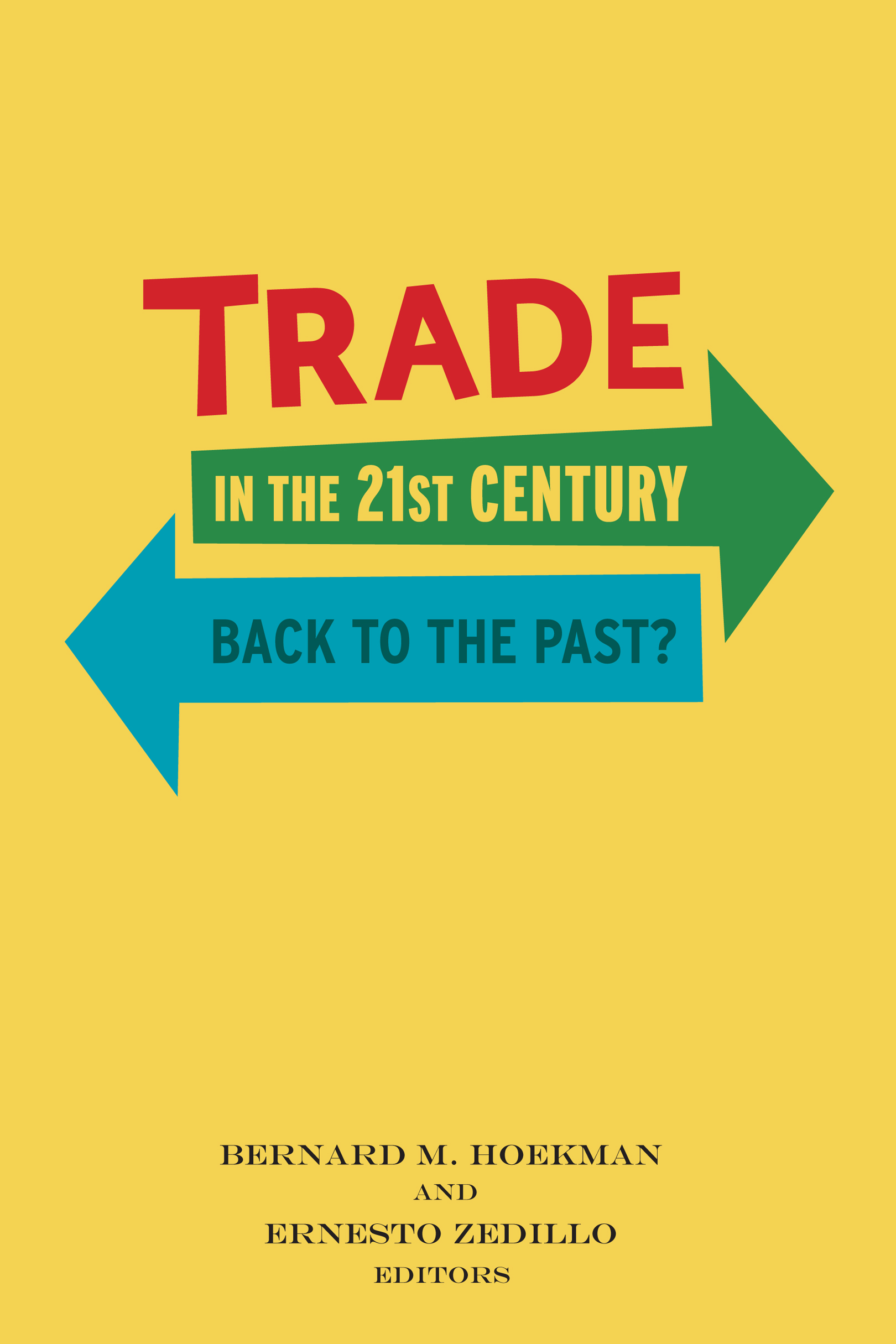
TRADE IN THE 21CENTURY
BACK TO THE PAST?
Edited by
BERNARD HOEKMAN
ERNESTO ZEDILLO
BROOKINGS INSTITUTION PRESS
Washington, D.C.
Copyright 2021
THE BROOKINGS INSTITUTION
1775 Massachusetts Avenue, N.W.
Washington, D.C. 20036
www.brookings.edu
All rights reserved. No part of this publication may be reproduced or transmitted in any form or by any means without permission in writing from the Brookings Institution Press.
The Brookings Institution is a private nonprofit organization devoted to research, education, and publication on important issues of domestic and foreign policy. Its principal purpose is to bring the highest quality independent research and analysis to bear on current and emerging policy problems. Interpretations or conclusions in Brookings publications should be understood to be solely those of the authors.
Library of Congress Control Number: 2020948922
ISBN 9780815729044 (pbk)
ISBN 9780815729051 (ebook)
9 8 7 6 5 4 3 2 1
Typeset in Avenir Next and Janson
Composition by Westchester Publishing Services
- BERNARD HOEKMAN AND ERNESTO ZEDILLO
- SIMON EVENETT
- CHAD P. BOWN
- CRAIG VANGRASSTEK
- L. ALAN WINTERS
- EDDY BEKKERS, JOSEPH FRANCOIS, DOUGLAS NELSON, AND HUGO ROJAS-ROMAGOSA
- SIMON EVENETT
- BERNARD HOEKMAN AND PETROS C. MAVROIDIS
- ANNE O. KRUEGER
- BERNARD HOEKMAN AND DOUGLAS NELSON
- ERIK VAN DER MAREL
- PATRICK LOW
- SBASTIEN MIROUDOT AND BEN SHEPHERD
- OLIVIER CATTANEO AND SBASTIEN MIROUDOT
- JEAN-JACQUES HALLAERT
- JAIME DE MELO
- JOSEPH MICHAEL FINGER
A TRIBUTE TO PATRICK MESSERLIN
This volume was conceived to honor Patrick Messerlin, a teacher, colleague, and friend to all the contributors. Patrick has spent much of his professional career doing highly insightful and policy-relevant applied economic research. In pointing out the economic costs of policies affecting trade in agricultural products, manufacturing, and services, he did not make many friends among the officials and politicians of his country, France, or in the European Commission. Patrick has always gone where the data and evidence took him, in the process making important contributions to both the economic literature and public policy debates.
The journey to publication of this book began in December 2011 when we organized a conference at the Yale Center for the Study of Globalization to celebrate Patricks achievements and contributions as he prepared to retire from Sciences Po. Participants were invited to write papers related to the theme Trade in the 21st Century: Back to the Past? reflecting on the implications of the major changes that had occurred since the early to mid-1980s when many countries began engaging seriously in unilateral trade liberalization and pursuing a process of deregulation and privatization.
As we sought a motivational framework for the gathering, we raised several fundamental questions: What are implications for trade policy broadly defined, and more specifically for international cooperation in the trade area? Have the incentives to use the discriminatory policies that are subject to WTO rules really changed? Is there greater mileage in a return to a unilateral policy reform focus? Has the global focus on dealing with trade restrictions and distortions through a mercantilist process been a mistake, and do we need to go back to the past and make the case for unilateral reforms that will raise national welfare independent of what other countries do? Are we heading back to a balance-of-power world in economic relations (a la Bismarcks nineteenth century)with major countries and blocsNorth America, a China bloc, the European Unionfocused on improving their terms of trade?
It was with this theme and these questions in mind that we issued our invitations. The response from Patricks colleagues was overwhelmingly positive. An impressive range of scholars wanted to participate, some of whom Patrick had inspired and some of whom he had taught.
At the gathering, many began their remarks by paying personal tribute to Patrick and his influence on their work. Anne Krueger noted that he had been a key contributor to our understanding of the costs of protectionist measures and the benefits of an integrated international economy. Hes also been, in my judgment, more than most of us, exceptionally brave, taking on sacred cows in Europe and in France in a time when the opinion of policymakers is firmly set in other directions, and when the likelihood that opinion might change seemed discouragingly small. Simon Evenett commented, What I took away from what Patrick had taught us is that, in some sense, the most important thing is to get to and understand the heart of the problem and to hell with whether or not its convenient or makes you look good as a theorist or good as an econometrician. Alan Winters remarked, We all owe Patrick a great debt for his companionship and intellectual leadership. Patrick once thanked me because he said just occasionally he was only the second most unpopular person in Brussels and that I had displaced him from the top spot. So, Im very pleased to pay tribute to my comrade in arms.
Jagdish Bhagwati sent a message stating, Patricks contributions to our understanding of the cost of protection, and his relentless writings on it in the public policy space, have served the cause of enlightened trade policy, through thick and (often) thin. If we did not have Patrick in our midst, we would have had to invent him. This testimonial was particularly poignant to those of us who had heard Patrick explain that he essentially taught himself international trade theory by reading Professor Bhagwatis publications because Bhagwatis workand that of other like-minded free trade economistswas not part of the curriculum at the time in France.
Patrick has been a leader in the analysis of the political economy of trade policy, with a special interest in the European case. His 2001 book on European trade policy is among his most cited publications and remains a standard text for anyone interested in understanding the EUs commercial policy. His early empirical studies of the political economy of antidumping were pathbreaking, and his insights regarding the incoherence that exists between trade and competition policy were particularly prescient and remain very relevant today. Patrick was among the first trade economists to think seriously about services trade policy, the links between trade and domestic regulatory policies, and the political economy drivers of subsidy programs. The latter led to an innovative project to determine and publicize the allocation of agricultural subsidies in France, in which he and several of his students helped to raise public awareness of the extent to which the benefits of EU agricultural support programs accrued to large and profitable farmers rather than to smallholders. A recurring feature of Patricks professional contributions is his willingnessand abilityto document uncomfortable facts that those in authority would rather not confront. He has consistently addressed trade policy questions that have important practical implications rather than writing for a purely academic audience, pointing to the costs of protectionist policies, including in sectors given little attention by mainstream economists.
Font size:
Interval:
Bookmark:
Similar books «Trade in the 21st Century»
Look at similar books to Trade in the 21st Century. We have selected literature similar in name and meaning in the hope of providing readers with more options to find new, interesting, not yet read works.
Discussion, reviews of the book Trade in the 21st Century and just readers' own opinions. Leave your comments, write what you think about the work, its meaning or the main characters. Specify what exactly you liked and what you didn't like, and why you think so.

